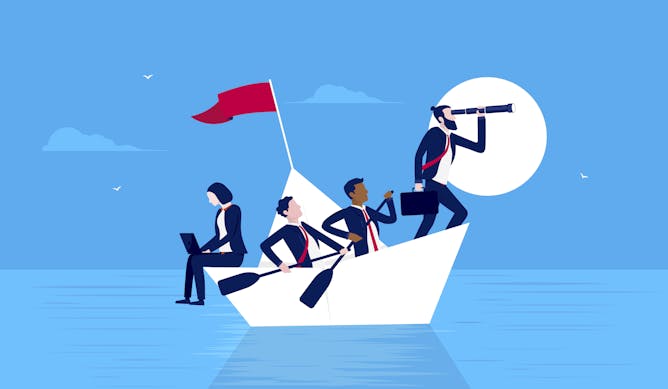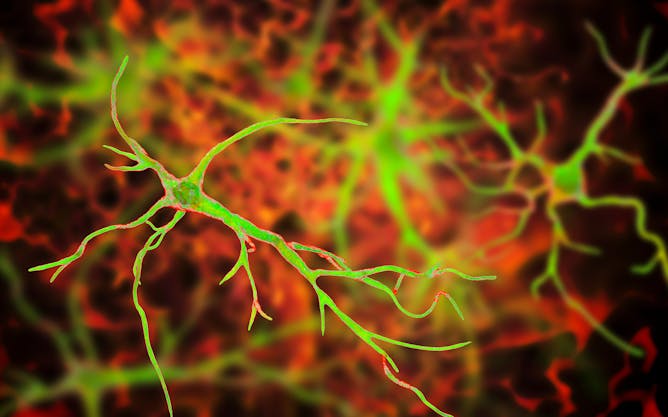|
|
|
|
People don’t spend during fearful times, and the pandemic has been a classic example. We squirrelled away our earnings and paid down debts, putting off that new washing machine or Xbox for another day. But as optimism slowly returns, we are spending again – and using credit cards and overdrafts to make it go further.
Unfortunately, manufacturers can’t keep up, and it’s causing inflation. The same thing happened after the second world war, says economic historian Sean H Vannatta, and nations like the UK and US used credit controls to restrict people’s borrowing.
Such ideas have been heresy since the free-market 1980s, and governments are now relying on consumer borrowing to fuel a COVID recovery. But Vannatta thinks it could be time for credit controls to come in from the cold.
Separately, we look at the current labour shortages, and weigh the pros and cons for workers and the gig economy. And we explore how job-seeking is made to seem like a religious pilgrimage, and how
this affects unemployed people.
Finally, this week’s podcast is about neuroplasticity, the quality in our brains that makes younger people more adaptable. New research in this field could fight diseases – and potentially super-charge our learning capabilities.
|

|
Steven Vass
Business + Economy Editor
|
|

In the years after the second world war, credit was in short supply.
Trinity Mirror/Mirrorpix/Alamy
Sean H. Vanatta, University of Glasgow
Consumer spending fuelled by credit cards and bank loans has become central to economic growth, but it wasn’t always.
|

Overearth/Shutterstock
Tom Boland, University College Cork
Not only is much of the language associated with job-seeking religious but so are the ways in which people approach success and failure in the process.
|

Astrocytes: these cells could be part of the key to unlocking the mystery of how brains change their structure.
Kateryna Kon/Shutterstock
Gemma Ware, The Conversation; Daniel Merino, The Conversation
From the archive: new research helps unpick clues about the brain’s ability to change its structure. Listen to The Conversation Weekly podcast.
|
Environment + Energy
|
-
Nick Bernards, University of Warwick
The world is acting on climate change – just not effectively.
-
Kamran Mahroof, University of Bradford; Sankar Sivarajah, University of Bradford
Food waste is responsible for 3 billion tonnes of carbon dioxide emissions.
-
Romain Garrouste, Muséum national d’histoire naturelle (MNHN)
The ecological cost of the deadly fires in southern France will be enormous. Scientists and residents will have to find a way to rebuild together.
-
Maddy Thompson, Keele University
As the pandemic pushes healthcare online, it’s time to stop overlooking the environmental impacts.
|
|
Health
|
-
Olivier Jolliet, University of Michigan; Katerina S. Stylianou, University of Michigan
A new study puts numbers to the health and environmental benefits – or impacts – of individual foods and shows how small changes can make a significant difference.
-
Janet Cade, University of Leeds
Eating more than your metabolism burns is likely to cause you to gain weight.
|
|
Politics + Society
|
-
Hanif Sufizada, University of Nebraska Omaha
Hanif Sufizada got caught in Kabul as the Taliban took over. A scholar and resident of the US who works at the University of Nebraska in Omaha, Sufizada describes his experience trying to leave.
-
Tom Kingstone, Keele University; Lisa Dikomitis, Keele University
Social workers worried that moving services online decreased quality and access.
|
|
Business + Economy
|
-
John Colley, Warwick Business School, University of Warwick
It could push up prices and pay.
|
|
Arts + Culture
|
-
Mark McKenna, Staffordshire University
A moral panic fanned by the tabloid press led to crusaders seeking legislation to regulate the home video industry and a slew of low-budget horror films.
|
|
| |
Featured events
|

|
Petersfield, Cambridge, Cambridgeshire, CB1 2EW, United Kingdom of Great Britain and Northern Ireland — University of Cambridge
|

|
Lancaster University, Lancaster , Lancashire, LA1 4YW, United Kingdom of Great Britain and Northern Ireland — Lancaster University
|

|
King's College, Aberdeen, Aberdeenshire, AB24 3FX, United Kingdom of Great Britain and Northern Ireland — University of Aberdeen
|
|
|
|
| |
| |
| |
| |
| |
|
|
|
|
|
|
|